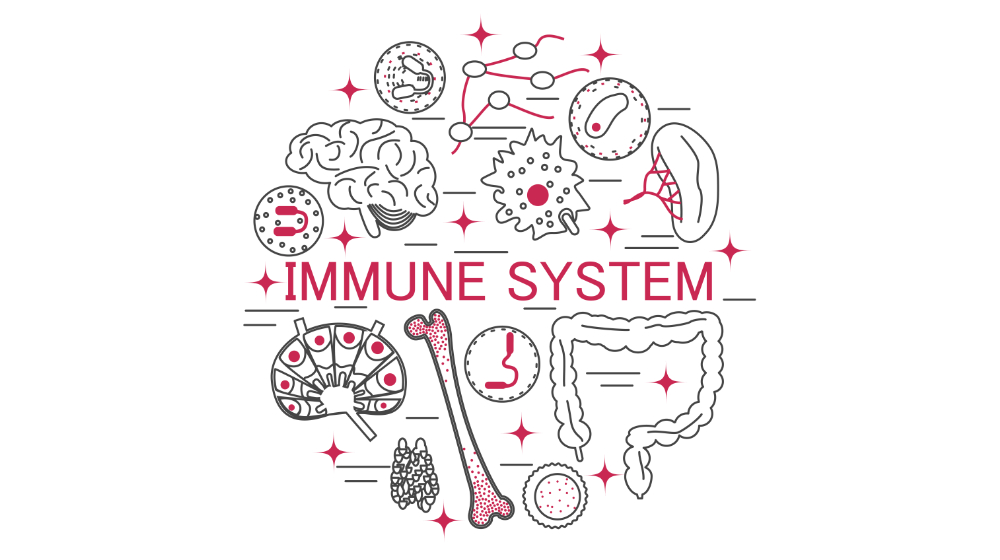Our immune system is an ancient and amazingly complex system designed to keep our bodies functional at all times and to deal with the challenges posed by foreign intruders. However, our modern, convenient world has presented a number of new challenges for our main line of defence.
Here are 9 commonly occurring immune disruptors. Staying away from them may be a good idea. This will ensure that your immune system has all the resources it needs for your protection.
1. Stress, anxiety, panic
When we are stressed, our bodies tell our nervous systems and stress hormones that it is time to act. Our hypothalamus informs the adrenal glands to produce more hormones, adrenaline and also cortisol, and release them into the bloodstream. Experiments where adrenaline is given intravenously show that it reduces magnesium as well as calcium, potassium and sodium. This proves that when you are in stress and the adrenaline is released, you also burn magnesium.2. Insufficient sleep
According to the National Sleep Foundation, more sleep is unlikely to help you avoid illness, but missing hours of sleep can weaken your immune system, making you more susceptible to infection.3. Candida overgrowth
Yeast overgrowth is the main cause that suppresses immunity because yeast produces 178 different yeast toxins that must be removed from the body once released. The entire system used by the body to excrete yeast toxins expends nutrients and removes energy from other body functions, especially the immune system.Start by eliminating foods that feed yeast (e.g., high-sugar fruits, sugar, gluten-containing grains, caffeine).
4. Fast food and junk food
According to a German study, the immune system reacts similarly to a bacterial infection to fast food meals high in fat and calories. And this hyperreactivity can persist long after switching to a healthy diet. Therefore, the sooner these foods are eliminated, the better.5. Foods containing MSG (monosodium glutamate)
This study shows that eating food containing MSG can cause adverse changes in your thymus and spleen, which are crucial contributors to the immune function. (Both the thymus gland and the spleen make lymphocytes that eliminate foreign invaders; the spleen also makes antibodies that maintain good health.)6. Pops
Chemicals in soft drinks can affect gut bacteria. This is problematic because there are many interactions between the body’s immune system and the bacteria in the gut.A recent study examining the effect of pops on gut bacteria found that consuming them can cause damage to the microbiome. The digestive and intestinal tract is filled with beneficial bacteria that keep the body healthy.
7. Excessive caffeine intake
When caffeine is consumed in moderation, i.e. up to 400 mg of caffeine (roughly 3–4 cups of brewed coffee), it can have some positive effects on inflammation, and the antioxidants in coffee may even help prevent some types of cancer, heart diseases, diabetes, osteoporosis, and neurological diseases.Too much caffeine, however, can reduce the immune system’s ability to fight infections and remove damaged or abnormal cells. Studies also show that women and men who drink large amounts of caffeine release higher levels of cortisol, a stress hormone, in response to physical and mental stress.
8. Smoking
Smoking suppresses immune cells. Cigarette smoke contains more than 4,000 toxins, most of which can irritate or kill cells in the body. Smoking alters the number of various immune cells and impairs the functionality of others. It can even turn the immune system against the body’s own cells.As a result of these changes, smokers are more likely to suffer from several types of infectious diseases, including respiratory infections, influenza, and even gum disease. When smokers quit, their immunity starts to improve within 30 days.
9. Alcohol
There is significant evidence that alcohol impairs the function of the immune system. These disruptions can impair the body’s ability to defend itself against infection.Alcohol alters the number and relative abundance of microbes in the gut microbiome, which is a large community of microorganisms in the gut that supports normal gut function. These organisms affect the maturation and function of the immune system. Alcohol disrupts the communication between these organisms and the gut immune system.
Products in the category Immunity and digestion, Stress and sleep.

 com
com  at
at  be
be  ch
ch  CZ
CZ  de
de  es
es  fr
fr  hu
hu  it
it  nl
nl  pl
pl  sk
sk 